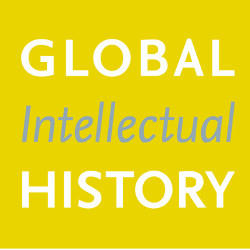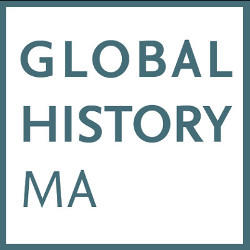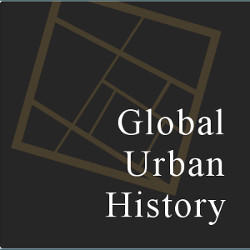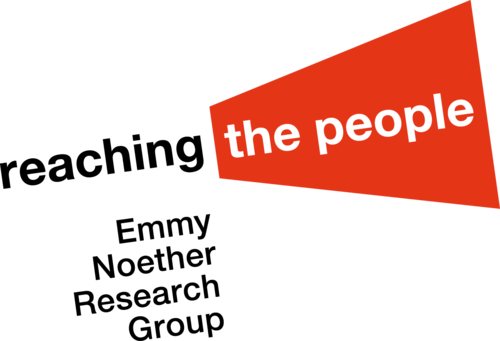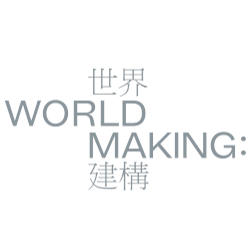Dr. Adrián Lerner Patrón
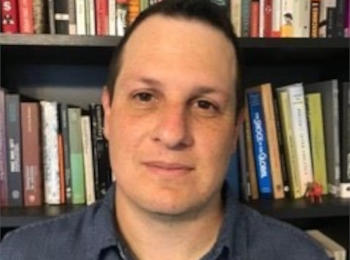
Friedrich-Meinecke-Institut
Global History
Research Associate and Lecturer (Wissenschaftliche Mitarbeiter)
Latin America, Urban History, Environmental History, History of Science
Raum A.211
14195 Berlin
Sprechstunde
Adrián Lerner joined Freie Universität Berlin as a postdoc in Global History in 2021. He is a historian of cities, environmental history, the history of science, and Latin America. His current monograph, Jungle Cities: The Urbanization of Amazonia explores the parallel and divergent histories of Manaus (Brazil) and Iquitos (Peru), the crucial urban nodes of the Amazon rainforest. He is also working on two co-edited volumes: one about the links between capitalism and the formation of the ecological imagination in Peru (with Javier Puente, Smith College), and one about Peru from the perspective of global history (with Alberto Vergara, Universidad del Pacífico). He has also published widely on the histories of politics, international relations, gender, and public policy in Latin America. He has wide research interests in the history of Amazonia, the urbanization of the Global South, and, most recently, the rise of global infrastructure and business.
Born and raised in Lima, Peru, Adrián obtained his BA and Licenciatura at the Pontificia Universidad Católica del Perú. He then moved to the United States, where he earned his MA, MPhil, and PhD in History from Yale University, where he was also a member of the inaugural cohort of the Interdisciplinary Concentration in the Humanities, focused on “The Technologies of Knowledge.” Before coming to Freie Universität Berlin, he was the Princeton Mellon Postdoctoral Research Fellow in Urbanism and the Environment at Princeton University.
Winter 2021
- The Politics of Global History: The Question of Primacy (MA in Global History)
- Theory, Methodology and History of Historiography (BA in History)
Adrián’s current book project deals with social, political, and environmental change in a crucial region for the global ecosystem. The Amazon rainforest became an urban region during the twentieth century. Today, four out of every five of its inhabitants, some 30 million people, live in cities. Jungle Cities: The Urbanization of Amazonia, studies this process through the histories of its most important cities: Manaus (Brazil) and Iquitos (Peru). A comparative history, Jungle Cities documents a central tenet of the project of local, national, and transnational elites to create modernity: the attempt to overcome nature, and to displace the lifestyles and peoples associated with it. The social processes they unleashed, instead, revealed pervasive interactions between cities and jungle, the complex technical and scientific challenges they imposed, the agency of local peoples, and the combination of resilience and precariousness that characterized urban life in the rainforest. The boundary between metropolis and hinterland was never fixed. Since the advent of the steamship and the integration of Amazonia to global markets during the rubber boom of 1850-1920, elites and popular classes struggled to create stable built environments in the rainforest. After the boom, decades of economic stagnation turned even the achievement of basic infrastructure a formidable challenge. The manuscript explores the links between social inequalities and difficulties to control waterways, the defining ecological elements in the Amazon floodplain, between the origins of Amazonian urbanization and the 1960s, to reveal that the history of the cities and that of the rainforest formed single, entangled ecosystems, in which ecological and social processes were indistinguishable. By the 1960s, both Amazonian cities faced the combined pressures of explosive urban growth and the anxieties of the Cold War era. Military-led authoritarian governments in Brazil and Peru responded through radically different strategies, which the book explores through governmental policies towards similar, seasonally waterlogged informal neighborhoods in Manaus and Iquitos. Originally framed in familiar terms associated with transnational ideas about the urbanization of the Global South and stigmatized as cases of “environmental marginality”, policies ultimately differed because they were part of drastically different agendas towards Amazonia in Brazil and Peru. The hubris of the Brazilian generals contrasted with the reformism of their Peruvian counterparts. In the 1970s, Iquitos remained organized around the management of social and environmental precariousness, with urban waters still a central issue, whereas Manaus became a “pole of development.” A demographic, commercial and industrial juggernaut, its influence reached far into the rainforest and, often tragically, it impacted the life of Brazil’s native peoples.
In addition to his work on Amazonian urbanization, which will also produce a series of spinoff articles, Adrián is working on two edited volumes about Peruvian history. The first, a collaboration with the historian Javier Puente, is a collection of essays about the links between capitalism and the geographic imagination in the country. The book shows how regional divisions assumed to reflect natural phenomena have been in fact related to the naturalization of capitalist relations, and how these ideas have in turn played a role in deepening specific capitalist formations. The second collection, co-edited with the political scientist Alberto Vergara, is an approach to Peruvian modern history and society through the prism of global history. Featuring more than 40 collaborations, the book will interrogate the ways key episodes of modern Peru have interacted with global processes.
Future research projects are related to Amazonian history in the longue durée, poor informal neighborhoods located in waterlogged spaces in cities across the Global South, and the history of telecommunications.
Books Authored:
| In Preparation | Jungle Cities: The Urbanization of Amazonia |
| 2012 | Indiferencias, tensiones y hechizos: medio siglo de relaciones diplomáticas entre Perú y Brasil, 1889-1945. Lima: Instituto de Estudios Peruanos, 2012 (with Marcos Cueto). |
Books Edited:
| In Preparation | Shaping Natural Regions: Capitalism, Environment, and the Geography of Post-Colonial Peru. (with Javier Puente). |
| In Preparation | Perú Global: Historia, política y sociedad (with Alberto Vergara). |
| 2011 | Desarrollo, desigualdades y conflictos sociales: una perspectiva desde los países andinos. Lima: Instituto de Estudios Peruanos, 2011 (with Marcos Cueto). |
Peer-Reviewed Articles and Chapters:
| 2021 | Editor and author of the Introduction (“El problema de la tierra” and editor of “Moving Imagues of Revolution,” Critical Forum about the documentary La revolución y la tierra by Gonzalo Benavente Secco (2019), for Age of Revolutions.https://ageofrevolutions.com/2021/04/07/moving-images-of-revolution-a-critical-forum-on-gonzalo-benavente-seccos-la-revolucion-y-la-tierra-peru-2020/ |
| 2021 | “More than Three Meals per Day” in critical forum about John D. French, Lula and His Politics of Cunning: From Metalworker to President of Brazil (Chapel Hill, NC: The University of North Carolina Press, 2020). Forthcoming by Labor. Studies in Working-Class History. |
| 2021 | “Evidence, Methodologies, Analysis, and the Joy of Historical Research: An Interview with Noble David Cook” in Histórica (Perú), Vol 44, No 2, 2020 (published in 2021). |
| 2019 | “The Shining Path: The Last Peasant War in the Andes.” In Hilel Soifer and Alberto Vergara (editors). Politics after Violence. Legacies of the Shining Path Conflict in Peru. Austin: University of Texas Press, 2019. (with José Luis Renique). |
| 2018 | “Informal Urbanization and the State: The Rise and Fall of Urban Populism in Lima” in Roberto Rocco and Jan van Ballegooijen (editors), The Routledge Handbook on Informal Urbanization. London: Routledge, 2018. (with Matteo Stiglich). |
| 2017 | “Crecimiento urbano, salud pública y saneamiento en Iquitos (c. 1860- 1980)” in Jorge Lossio and Eduardo Barriga (eds.), Salud pública en el Perú del siglo XX: paradigmas, discursos y políticas. Lima: Pontificia Universidad Católica del Perú, 2017: 19-45. |
| 2016 | “Who Drove the Revolution’s Hearse? The Funeral of Juan Velasco Alvarado.” In Carlos Aguirre and Paulo Drinot (eds.), The Peculiar Revolution: Rethinking the Peruvian Experiment Under Military Rule. Austin: University of Texas Press, 2016: 73-94. |
| Spanish translation published as “¿Quién enterró la revolución? El funeral de Juan Velasco Alvarado,” Instituto de Estudios Peruanos, 2018. | |
| 2011 | “Esterilizaciones masivas y esfera pública en el Perú, 1994-1998” in Claudia Rosas Lauro (ed.). “Nosotros también somos peruanos”. La marginación en el Perú, siglos XVI a XXI. Lima: Pontificia Universidad Católica del Perú, 2011: 327-354. |
Scholarly Reviews:
| 2021 | Ana Molina Campodónico, Ana Varela Tafur y Jorge Lossio Chávez. El río deja de ser. Introducción al estudio de la historia y la cultura contemporánea de la Amazonía peruana. Lima: Pontificia Universidad Católica del Perú, Instituto Riva Agüero. Historia Agraria De América Latina, 2(01), 209-212. |
| 2020 | Fernando Santo-Granero, Slavery and Utopia. The Wars & Dreams of an Amazonian World Transformer. Austin: University of Texas Press, 2018. Forthcoming by Canadian Journal of Latin American and Caribbean Studies, 46 (1), 157-159. |
| 2018 | Manuel Llamojha Mitma and Jaymie Patricia Heilman. Now Peru is Mine. The Life and Times of a Campesino Activist. Durham and London: Duke University Press, 2016. European Review of Latin American and Caribbean Studies, 106, July-December. |
| 2018 | Asensio, Raúl, H. El apóstol de los Andes: El culto a Túpac Amaru en Cusco durante la revolución velasquista (1968–1975). Lima: Instituto de Estudios Peruanos, 2017. Hispanic American Historical Review, 98:4, 751-753. |
| 2016 | Aguirre, Carlos and Javier Villa-Flores (eds.), From the Ashes of History: Loss and Recovery of Archives and Libraries in Modern Latin America. Raleigh, NC: Editorial A Contracorriente, 2015, pp. 342. In Journal of Latin American Studies, 48:4, 851-853. |
| 2016 | Roller, Heather. Amazonian Routes. Indigenous Mobility and Colonial Communities in Northern Brazil. Stanford, CA: Stanford University Press, 2014, pp. xv + 342 in Journal of Latin American Studies, 48:2, 396-398. |
| 2015 | Necochea, Raúl. A History of Family Planning in Twentieth-Century Peru. Chapel Hill, NC: The University of North Carolina Press, 2014, 248 pp., in Global Public Health. An International Journal for Research, Policy and Practice, 10:9, 1134-1135. |
| 2015 | Jouve Martín, José R. The Black Doctors of Colonial Lima: Science, Race,and Writing in Colonial and Early Republican Peru. Montreal, Kingston, London and Ithaca: McGill-Queen’s University Press, 2014. 210 pp. In Apuntes. Revista de Ciencias Sociales. 42:76,176-178, 2015. |
| 2015 | Varese, Stefano, Frédérique Apffel-Marglin y Roger Rumrrill (coordinadores). Selva Vida. De la Destrucción de la Amazonía al Paradigma de la Regeneración. Lima: IWGIA / PUMC-UNAM / Casa de las Américas, 2013, 278 pp. In Revista Andina, 53. |
| 2011 | Warren, Adam. Medicine and Politics in Colonial Peru: Population Growth and the Bourbon Reforms. Pittsburgh: University of Pittsburgh Press, 2010, 290 pp. In Histórica, 35:2, 158-161. |
| 2008 | Lamana, Gonzalo. Domination without Dominance: Inca-Spanish |
| Encounters in Early Colonial Peru. Durham and London: Duke University Press, 2008, 289 pp. In Histórica, 32: 2, 215-219. | |
| 2007 | Titu Cusi Yupanqui. History of How the Spaniards Arrived in Peru: Dual-Language Edition. Translated, with an Introduction, by Catherine Julien. Indianapolisand Cambridge: Hackett Publishing Company Inc., 2006, xxxv + 180 pp., mapas. InHistórica, 31: 2,194-197. |



